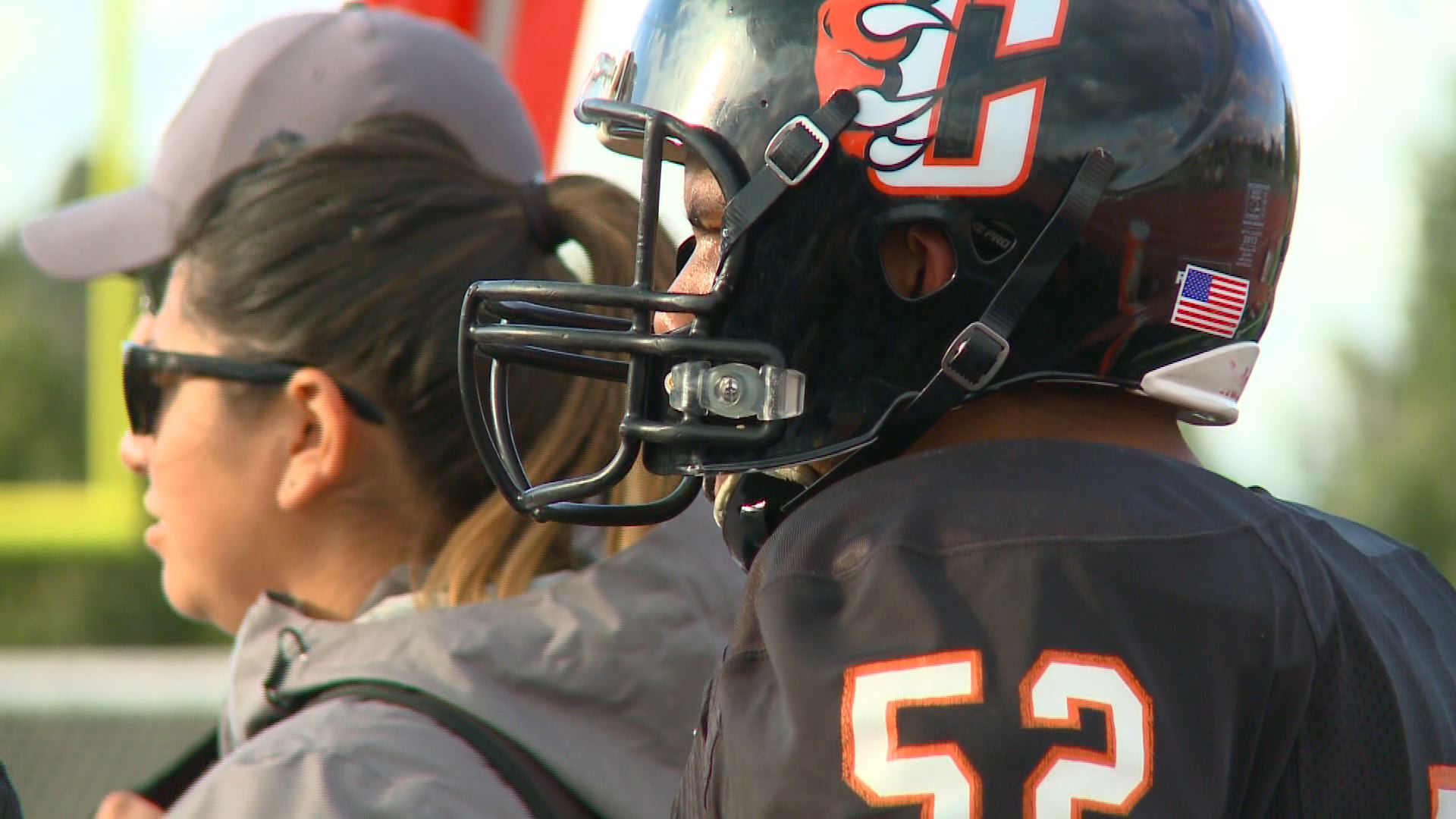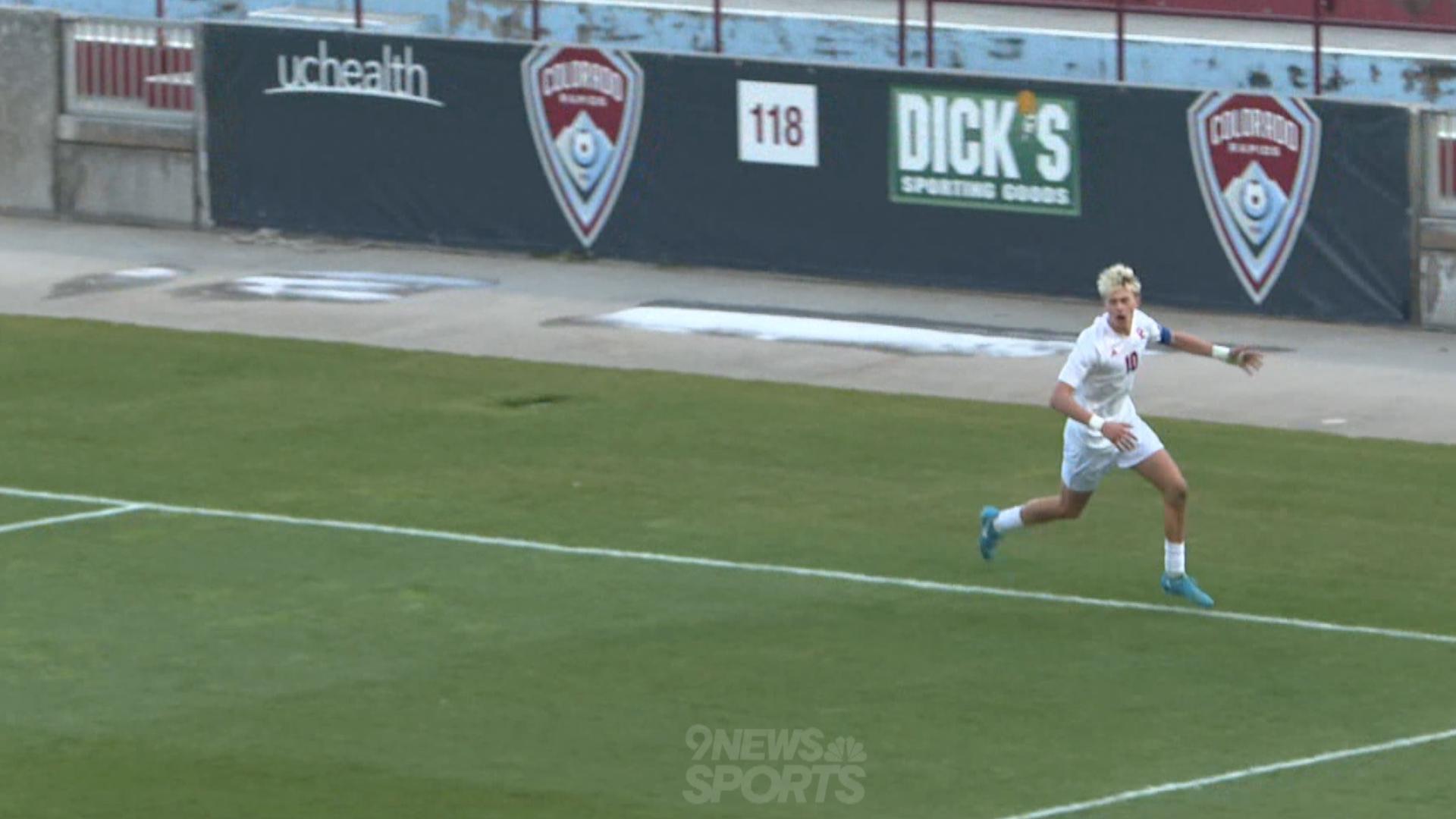Senses play a big role at any sporting event. Whether dissecting the plays, feeling the perspiration under a bright Colorado sun or taking in the crowd's cheers, they help players and fans alike get a better feel for the game.
Usually, it's a combination of touch, taste, smell, sight and sound that bring a game to life. Like many young players, it was the hitting that initially drew Greeley Central freshman Emilio Barrera-Espinal to the game.
"I feel like, more energized, I feel like I can do this," he said of the feeling after a big hit.
But unlike his peers, every crunch and pop from contact on the field have to be felt.
"I was born with hearing loss and then I learned sign language when I was in preschool," he said.
Emilio wears a hearing implant when at school, but must take it off to play football. Without it, only 20 percent of sound filters into his ears -- not including the muffling caused by a helmet.
"I was struggling a little bit because I can't hear what they're trying to tell me, or when they're trying to say something," Barrera-Espinal said. "But most of the time, if [a person] knows I'm deaf, they will just try to use gestures to make me understand more, better."
When he takes his position on the field, most opponents don't realize they're lining up against a player who's deaf. That was the case for even his own coaching staff at first.
"I didn't know until our first day," freshman football coach Kris Harris said. "My first day here was a varsity camp, so I hadn't met any of the 'C' team guys."
Harris is in his first year of coaching. Having grown up in Greeley, he attended cross-town rival Greeley West. But as fate would have it, he ended up with the Wildcats, instead.
"The first time I signed to [Emilio], we were doing conditioning and he forgot his inhaler and he went off to the side and was having a hard time breathing," Harris said. "He looks up at me and I [sign to him], 'Are you OK?' His eyes kind of widened and he just stared at me."
That's right. Harris is conversational in sign language. Growing up, his mother was an interpreter for the deaf community. When Emilio was in second grade, she served as Emilio's interpreter at Chappelow Elementary School.
"Once I saw Emilio, I started really working on having her teach me some more, you know, to get me back into it," Harris said.
Kris and Emilio have also begun creating their own football language on the field. When learning new plays or in the huddle, an interpreter is present to translate. On game days, however, Harris and the interpreter will sign in every play word-for-word from the sidelines. Emilio responds with a thumbs up.
"We're in the huddle, right? I just came out and look at my coach's signals, like 1, 3, something. And then I come back and break it up," Emilio said.
But it has become more of a team effort than just that. Harris has worked with the other offensive linemen who play next to Emilio to teach them some basic signs. That way, if for whatever reason there's a miscommunication or Emilio doesn't see the play-call, one of his teammates can clue him in.
"It feels like a family," Emilio said. "They care about you, they care that you can understand more. They want me to understand things, they want me to play."
In the absence of hearing, Emilio says his vision has become his strongest ally on the field. While some who play his position are more easily influenced by a quarterback's voice inflection, he is always focused on the ball.
"It's somewhat of a challenge, sometimes, because I have to watch the ball and have to look up, see that guy, try to push him a little bit so I can grab the pads," he said.
Emilio has grown into a silent leader on his team. His coaches agree hie's one of their top players.
"He's naturally gifted. He's got a good football IQ, he's naturally athletic, he's really independent, so whether he knows what's going on or not, he makes something work," Harris said. "He's turned into, maybe not a vocal leader, but on the field, he's turned into one of our bigger leaders on the team. He's one of the best guys I have out on that field, and everybody sees that. 'Okay, well, [Emilio's] got no problem with it, what's my excuse?'"
"I feel more inspired when I see other disability person play sports, because I can do it, too. If that guy can do it, too, I can do it," Emilio said.
When one sense is absent, others become stronger. Sometimes those sensations have nothing to do with sight, sound or touch at all.
"I was a little apprehensive about coming over to the rival school, but after that first day of practice and especially having Emilio, it's kind of like, I was meant to be here for a reason," Harris said.
"I just want to inspire other deaf and hard-of-hearing people that they can use their eyes [and] not use their hearing. They can understand the signals," Emilio said.


